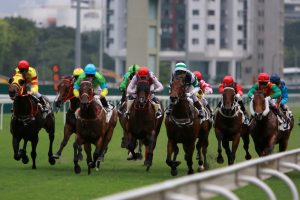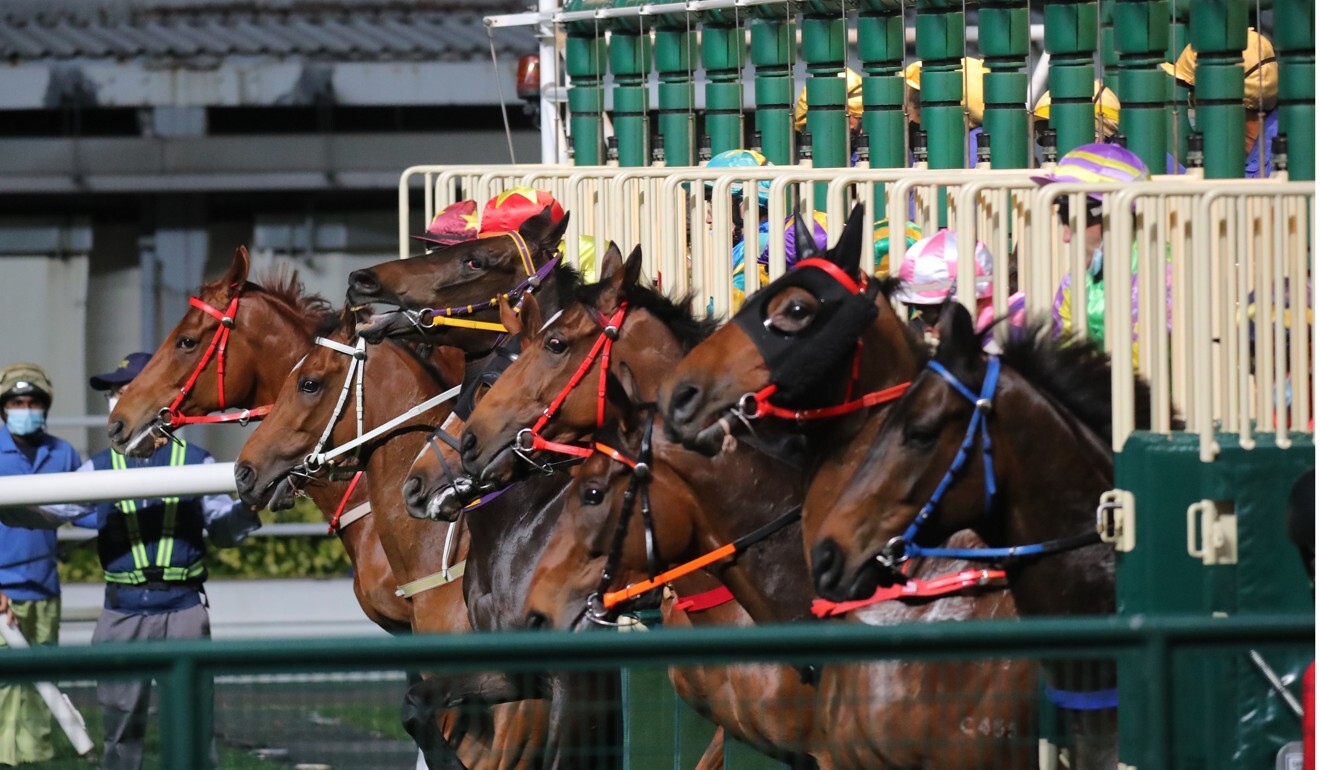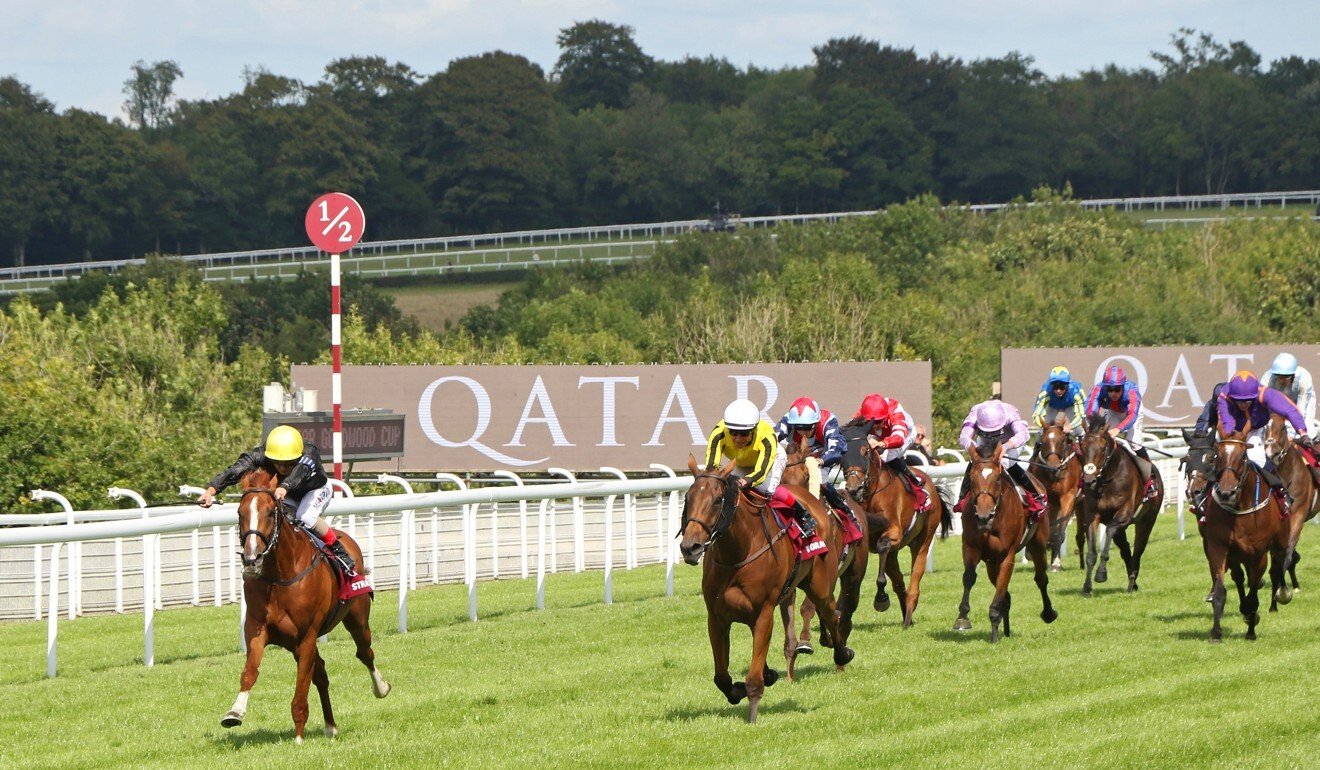HKJC Sportsbook App
HKJC doesn’t offer their bettors a welcome bonus or any other bonus whatsoever.
- Poker: No
- Casino: No
- Fantasy leagues: No
Deposit methods: Cash, PPS – Instant Funds Deposit, EFT at Self Vending Terminal, HKJC EFT Service
Withdrawal: EFT at Self Vending Terminal, HKJC EFT Service
Minimum deposit: HK$100
Maximum withdrawal: HK$50,000
Banking Method
Payment Method
Deposit processing time
Minimum deposit
Withdrawal processing time
Maximum withdrawal
Description
Doesn’t require registration.
PPS – Instant Funds Deposit
Online Betting Service (eWin)
This instant funds deposit via eWin is only available for users of PPS internet account with One-Time Password service registered
EFT at Self Vending Terminal
Self Vending Terminal
wait times vary
Available for any bank card* with EPS facility *Customers of HSBC and Hang Seng Bank are required to perform the initial funds deposit to betting account via designated Self-Vending Terminal (SVT) to activate the service.
HKJC EFT Service
wait times vary
wait times vary
After registration, customers can perform instant funds transfer with HKJC EFT via eWin, MangoPro, ect
Ready to bet in HK? Join one of our favourite betting sites to claim your welcome bonus:
HKJC Controls Online Betting in Hong Kong
Besides its land-based operations, the Hong Kong Jockey Club (HKJC) holds a monopoly on online betting in Hong Kong. Their site allows you to buy lottery tickets and bet on horse racing and football.
In 2002, the HKJC’s position was strengthened when it became illegal for international bookmakers to offer their services in Hong Kong and for residents to place bets with them.
Under this new law, representatives from companies providing betting services to Hong Kong residents could face seven years in prison along with a HK$5 million fine. Locals found using these websites could face up to nine months’ imprisonment and a HK$30,000 fine.
Because of these tough new laws, many international betting sites do not offer their services to customers in Hong Kong. However, the Home Affairs Bureau did state in 2014 that they would not take any action to block access to international betting sites.
International bookmakers continue to entice locals with excellent promotions for new members. Authorities are disinterested in prosecuting individual bettors and are, of course, actively chasing the ringleaders of underground casinos and gambling hubs instead.

Lay betting – the ability to place a wager on a horse to lose – through unlicensed exchanges such as Citibet is a particular area of concern because “they are the obvious place to go if you’re going to cheat”.
HKJC builds betting profiles on every jockey and trainer to help fight against corruption
The hi-tech monitoring systems that busted jockey Nash Rawiller have been detailed by the Hong Kong Jockey Club as part of the Asian Racing Federation’s new handbook on good practices for addressing illegal betting.
In 2018, Rawiller was disqualified for 15 months for receiving money or gifts in return for tips with the breaches discovered as part of the bet-monitoring process.
Jockey Club executive manager of racing integrity and betting analysis Tom Chignell highlighted how his team has dossiers on every jockey and trainer in Hong Kong, funnelling all the trends from both the legal and illegal betting markets into a system with alerts to flag anything suspicious.
Disgraced Hong Kong jockey Nash Rawiller back home in Australia as ICAC decides not to press charges
“A big part of our analysis is looking at long-term trends and the historic bet offers can be scrutinised with a ‘big data-type approach’. Long-term irregular betting trends on jockeys and trainers which are suspicious are automatically flagged,” Chignell said.
“For example, is the same jockey or trainer subject to the largest lay bet offers this month? We have developed betting alerts – an effective way to consistently assess and present betting information.
“In 2018, a leading jockey in Hong Kong was banned for breaching our rules because we had these systems in place. Suspicious betting patterns were flagged through bet monitoring, which then triggered an investigation and we had an inquiry and a disciplinary process.
“Creating betting profiles on individual racing participants can include betting alerts and other related statistics. These reports can help develop a strategic response to integrity threats.”
With the total amount of money wagered on racing and sports worldwide illegally estimated to be between US$340 billion and US$1.7 trillion, the Jockey Club places a big emphasis on understanding what is happening in that space.

Lay betting – the ability to place a wager on a horse to lose – through unlicensed exchanges such as Citibet is a particular area of concern because “they are the obvious place to go if you’re going to cheat”.
Analysts study the movements of those markets closely in real-time, flagging anything that could be an integrity threat.
“We monitor price movements and price differences between the legal market and the illegal market. We also monitor the actual financial size of lay bets made on illegal betting exchanges,” Chignell said.
“There are lay bet offers of HK$999,999 – and that’s been offered on one horse. These lay offers equate to more than HK$2 million and the liabilities on those bets are much greater.
“Factors such as the size of the lay bet offer, the time of the bet and the price are all factored into our analysis to help identity suspicious or irregular betting activity.
“Estimated turnover calculations on each runner help us to identify aggressive lay betting made on the illegal market.
Racing authorities need government help to combat ‘huge’ illegal betting operations: Hong Kong Jockey Club
“Activity on the illegal market is directly compared to the legal market and any significant difference, such as turnover differences outside the norm, is automatically flagged and we look into further.”
These intelligence reports analyse specific races, jockeys, trainers and owners and identify any areas of concern.
“Illegal betting continues to grow and illegal operators are perceived to be a safe haven for racing and match-fixers,” Chignell said. “[Bet monitoring] is critical to maintaining the integrity and reputation of the sport.”
Developed by the ARF’s Council on Anti-Illegal Betting and Related Financial Crime, the handbook was launched last week and is designed to help sporting administrators understand the negative impact of illegal betting and to highlight good practices in addressing them.
As well as bet monitoring and analysis, it addresses issues including the breadth and depth of the illegal marketplace, intelligence gathering, working with law-enforcement agencies and stakeholder engagement.
In a pool betting operation, the odds are determined by the bets being laid by the bettors. So, better odds from pool betting operators eliminates the advantages that might be offered by the black market, (or in the UK market, by licensed fixed odds betting operators).
Got another minute? Check out:

The COVID-19 pandemic lockdown has forced us to adapt many aspects of our daily lives. Prolonged indoor stays are accelerating the evolution of eCommerce, have made home office the current standard working model for many, and have brought the classrooms of our school children into our homes. But what will remain of this adaptive behavior once the lockdown has been lifted?

The last twelve months has seen the way we work, live and play change dramatically in light of the global pandemic. At BCLC, we’ve pivoted our approach to business and accelerated our player health response to meet our players’ needs in a quickly changing societal context and entertainment landscape.







World Lottery Association
Lausanne Office: Avenue de Provence 14 • Case postale 6744 • 1002 Lausanne • Switzerland • +41 21 518 9600 • [email protected]
Montreal Office: c/o Loto-Québec • 500 Sherbrooke Street West, Suite 2000 • Montréal, Québec H3A 3G6 • Canada • +1 514 282 0273 • [email protected]
Hong Kong punters will be able to wager on high-profile races from Europe during the off-season after the Jockey Club received approval from the government to simulcast up to 14 meetings, delivering an estimated HK$2.8 billion in betting turnover.
HKJC receives government approval to simulcast top European races in off-season

Hong Kong punters will be able to wager on high-profile races from Europe during the off-season after the Jockey Club received approval from the government to simulcast up to 14 meetings, delivering an estimated HK$2.8 billion in betting turnover.
The club got the green light after submitting a proposal to the Betting and Lotteries Commission in October to increase the maximum number of simulcast days from 23 to 37 as part of a campaign to fill the summer with feature events, including Glorious Goodwood, the Ebor Festival and the Shergar Cup.
Those 14 meetings are expected to hold about HK$200 million in turnover each, creating HK$350 million in additional betting duty for the government. The proposal also claims it will create 1,100 job opportunities at off-course betting branches and telebet centres.
Hong Kong Jockey Club wants to bet on Europe’s top races in off-season, seeks 14 more simulcasts
Historically, no overseas meetings were allowed to be simulcast during the Hong Kong racing off-season, which runs from July 17 to August 31, but that changed last year with a one-off allowance for the Kranji Mile card from Singapore, which was postponed as a result of Covid-19.
The success of that meeting – with turnover of HK$223.9 million and HK$28.8 million in betting duty going to the government – “reflected the demand for simulcast betting and its popularity among racing fans”, opening the door for more expansion.

While the move benefits both the Jockey Club and the government, the other big winners are the overseas organisations who host those races as they receive a percentage of the overall turnover as a product fee.
In addition to the iconic festivals at Goodwood and York, it is expected high-quality meetings like the King George VI & Queen Elizabeth Stakes from Ascot and Group One cards from Deauville will also be simulcast.
HKJC builds betting profiles on every jockey and trainer to help fight against corruption
The Jockey Club welcomed the move, claiming it will also help combat illegal betting activities.
“During the summer break of Hong Kong’s racing, it is the peak season of overseas racing particularly in Europe, and the illegal and offshore bookmakers have taken advantage of this time gap to lure Hong Kong people to place bets on overseas races,” the Jockey Club said in a statement.
“As such, the approval of extra simulcast days in the summer will effectively address the existing illegal gambling issues while at the same time generate additional betting duty as well as charities donations, and create additional job opportunities which will benefit the Hong Kong community as a whole.”
The beginnings of a long-term digital transformation at HKJC have established not only support for agile infrastructure but also greater individual flexibility by automating routine manual tasks. Additionally, Red Hat training courses on network automation and combining Linux® with Ansible Automation Platform have helped HKJC’s in-house teams make the most of this new, more efficient work approach.
Automating infrastructure processes with Red Hat’s user-friendly platform
After researching options, HKJC chose Red Hat Ansible Automation Platform to support its infrastructure automation journey. Ansible Automation Platform is an agentless solution that lets HKJC’s teams create playbooks for automating routine infrastructure management and operations tasks.
“With its visual dashboard and library of certified content, Ansible Automation Platform offered the simplest, most intuitive option for our engineering team, compared to competing solutions,” said Ruby. “Red Hat was seen as the only viable vendor to provide both the technology and services we needed. We tried the community version of Ansible, but we cannot spend too much time learning by ourselves. We need enterprise support.”
HKJC worked closely with Red Hat Consulting for implementation guidance, identifying 280 new workflows that could be more standardized and documented better using automation—such as server, storage, or virtual machine (VM) provisioning, firewall configuration, and database patch management. The organization also engaged Red Hat Training for instructor-led courses to help its teams learn best practices for automation at scale.
“Digital transformation is a core initiative for us, and IT efficiency and enterprise-wide collaboration are key to moving forward in that journey,” said Neil Whiteing, Director of IT Operations, Systems Assurance & Shenzhen Technology Center, Hong Kong Jockey Club. “Working with Red Hat has helped enhance and automate IT operations while improving cross-team communication, so we can focus on building an innovative customer experience.”
“In short, we did what was right for the Club and what was best for Hong Kong.”
HKJC turnover declines amid Covid-19 disruption in 2019-20

The Hong Kong Jockey Club (HKJC) has reported declines in revenue and turnover for its 2019-20 fiscal year, though management hailed the business’ resilience after it managed to avoid race cancellations over the period.
At a time when sporting events around the world were cancelled as as result of the novel coronavirus (Covid-19) pandemic, HKJC maintained a full race programme for the year, thanks to strict health and safety measures at its tracks.
“Racing is an important symbol of Hong Kong and its can-do-spirit, not to mention the vital support it provides through tax and charity funding. We were therefore determined to keep racing going,” HKJC chief executive Winfried Engelbrecht-Bresges said.
“This commitment was no less strong among horse owners, trainers and jockeys, backed up by the Club’s employees. I would especially like to thank our many employee heroes, who banded together to safeguard the wellbeing of our customers, members and the wider community.”
However, with its off track betting facilities shuttered in February and not reopened until late June, it still saw turnover decline for the year ended 30 June. This was mitigated in part by player activity shifting online; digital and mobile platforms accounted for 70% of wagering turnover, rising to 90% at the height of the pandemic.
Amounts wagered fell 11.6% year-on-year to HK$218.75bn, of which $195.47bn was staked by Hong Kong residents across all channels. Commingling agreements with international partners contributed the remaining $23.28bn, up 23.1%.
Looking at turnover by product, racing accounted for $121.00bn of the total, down 3.2%.
Betting on football, at a time when leagues and competitions were suspended as a result of the pandemic, was badly hit, however. HKJC estimated that up to 3,273 matches were either postponed or cancelled as a result of the Covid-19 shut-down, which resulted in turnover dropping 18.8% to $92.60bn.
The remaining $5.16bn came from the Mark Six lottery game, down 39.0% year-on-year, after draws were suspended in mid-February. However HKJC said that this vertical would have declined even without the pandemic, due to a lack of significant changes to the game format since its introduction.
After prizes were paid out to customers, this left revenue of $31.51bn, down 14.9%.
HKJC paid out $19.63bn in betting and lottery duties, a 13.8% drop on FY2018-19, with a further $88m paid out through commingling contracts, and $774m allocated to the Lottery Fund, which provides funding to charitable causes in Hong Kong.
This left net revenue and commission of $11.02bn, though total revenue was increased by $3.91bn from other sources, and a $57m gain from the sale of properties, to $14.99bn.
Operating costs for the year increased marginally to $11.82bn, while $2.57bn was granted to the Hong Kong Jockey Club’s Charities Trust. In 2019-20 the Trust made $4.5bn in donations, including a $346m commitment to tackling the impact of Covid-19.
This left HKJC with a $595m operating surplus (profit), down 35.0%. After interest on customer deposits, plus losses from investments and financial costs, as well as a share of joint venture profits, the operator’s pre-tax profit amounted to $599m. After $454m in income tax, this left the business with a net profit of $145m, down from $2.08bn in FY2018-19.
“I believe we have every reason to be proud of the Club,” HKJC chair Philip Chen said of the operator’s performance.
“We maintained our core racing, wagering and membership operations. We kept our customers, members, employees and licensed personnel safe and protected. Above all, we stayed true to our purpose.
“In short, we did what was right for the Club and what was best for Hong Kong.”
However, HKJC admitted that it faces an “extremely challenging” future, which has already seen the funding donations to its Charities Trust decline year-on-year. Nevertheless, it will continue to invest in strategic projects, such as the development of the Conghua Racecourse, and redevelopment of stables at its Sha Tin track.
Its online offering will be overhauled, with a new customer information and wagering system currently being built, while it aims to spur further growth through new commingling contacts and simulcasting deals.
“Ultimately everything comes back to the Club’s purpose – the betterment of our society – which must, and will, remain the same,” Chen added. “We will continue to enhance our much-admired position by doing the right things and doing them right. We will strive hard to improve our business results so that we can maintain our charity donations.”
